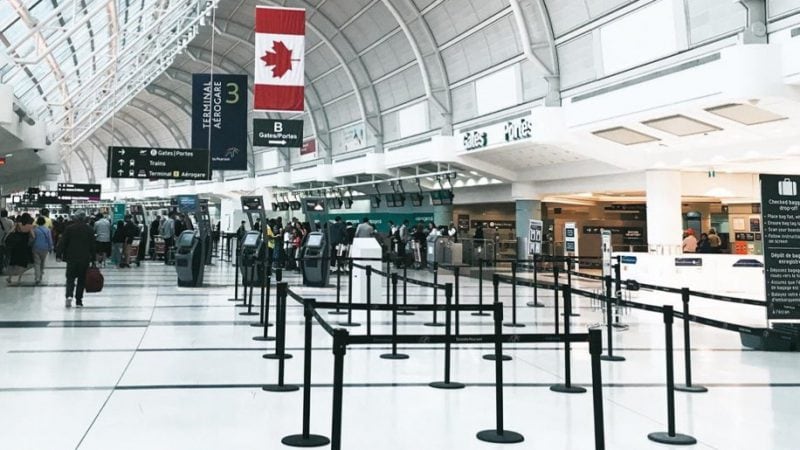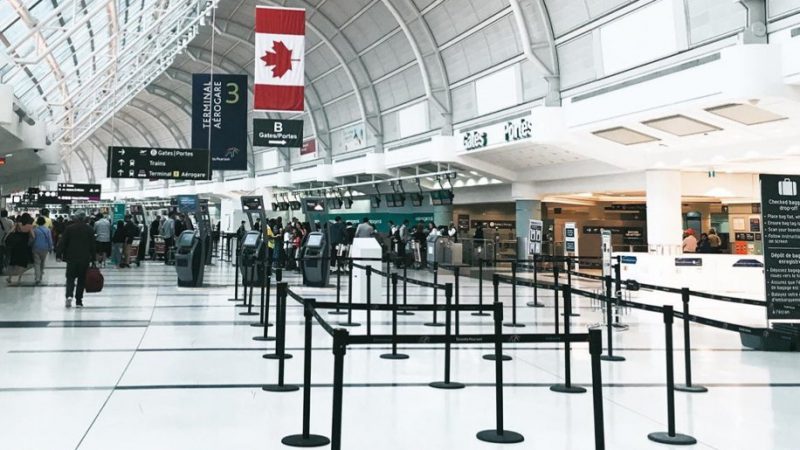Canada Eases International Travel Restrictions
The border opens to fully-vaccinated travelers from the US on Aug. 9, with the rest of the world set for Sept. 7
July 19, 2021


The government of Canada has announced that, starting Aug. 9, its borders are re-opening to non-essential travel from the US for American citizens and permanent residents currently residing in the United States who have been fully vaccinated.
So far, there has been no firm commitment from Washington on easing travel restrictions from Canada into the US. However at a press conference last week, President Joe Biden said his COVID-19 is reviewing travel restrictions, hinting that a decision could be reached “within the next several days.”
The reciprocal ban on non-essential cross-border travel between the two countries has been in place since March 2020.
The Canadian government’s latest announcements comes on the heels of its move to ease restrictions on certain groups of fully vaccinated travelers. Beginning July 5, fully vaccinated travelers, specifically Canadian citizens, permanent residents and eligible foreign nationals, can avoid the government’s 14-day quarantine requirement.
In addition, travelers in those groups returning to Canada by air will no longer be required to spend three days in a government-approved hotel when reentering the country.
Canada Welcomes the World
Re-opening the border to US travel in August is the Canadian government’s first step toward a broader relaxation of international travel restrictions. On Sept. 7, the government says it intends to open Canada’s borders to any fully vaccinated travelers, “provided that the domestic epidemiologic situation remains favorable.”
If they are eligible to enter Canada and meet specific criteria, fully vaccinated travellers will not have to quarantine upon arrival in Canada. To provide necessary travel information, including proof of test results and vaccination, all travelers arriving in Canada must use ArriveCAN mobile app or web portal.
ArriveCAN is available for iOS, Android and online here.
To be considered fully vaccinated, travelers must have received all recommended doses of one of the four Health Canada-approved COVID-19 vaccines – Pfizer-BioNTech, Moderna, Oxford-AstraZeneca or Johnson & Johnson. A person is fully vaccinated two weeks or more after receiving a “full course” of the vaccine, meaning both shots of vaccines that require them (see CDC vaccination guidelines here).
According to an announcement from the Canadian government, some travel restrictions remain in place for all travelers, regardless of vaccination status. All arrivals will still require a negative pre-entry COVID-19 molecular test result.
However effective Aug. 9, fully vaccinated travelers will not need a post-arrival test unless they have been randomly selected to complete a Day 1 COVID-19 molecular test. Mandatory testing requirements are still in effect for unvaccinated travelers.
Additionally, arriving air passengers will no longer be subject to the mandatory three-night stay in a government authorized hotel. Fully-vaccinated travelers who meet the requirements will be exempt from quarantine, but the government still requires all travelers to provide a quarantine plan and be prepared to quarantine, if it is determined at the border that they do not meet the requirements to be exempt.
New Gateways
Currently, there are four Canadian airports serving scheduled international commercial airlines: Montréal-Trudeau International Airport, Toronto Pearson International Airport, Calgary International Airport, and Vancouver International Airport.
Beginning Aug. 9, the government is adding five more airports that will allow international flights carrying passengers: Halifax Stanfield International Airport, Québec City Jean Lesage International Airport, Ottawa Macdonald–Cartier International Airport, Winnipeg James Armstrong Richardson International Airport and Edmonton International Airport.
“With rising vaccination rates and fewer cases in Canada, we can begin to safely ease border measures,” said Minister of Health Patty Hajdu. “A gradual approach to reopening will allow our health authorities to monitor the COVID-19 situation here and abroad. Canadians have worked hard and sacrificed for each other, and because of that work, we can take these next steps safely.”




